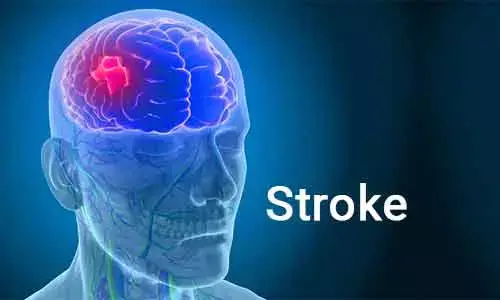- Home
- Medical news & Guidelines
- Anesthesiology
- Cardiology and CTVS
- Critical Care
- Dentistry
- Dermatology
- Diabetes and Endocrinology
- ENT
- Gastroenterology
- Medicine
- Nephrology
- Neurology
- Obstretics-Gynaecology
- Oncology
- Ophthalmology
- Orthopaedics
- Pediatrics-Neonatology
- Psychiatry
- Pulmonology
- Radiology
- Surgery
- Urology
- Laboratory Medicine
- Diet
- Nursing
- Paramedical
- Physiotherapy
- Health news
- Fact Check
- Bone Health Fact Check
- Brain Health Fact Check
- Cancer Related Fact Check
- Child Care Fact Check
- Dental and oral health fact check
- Diabetes and metabolic health fact check
- Diet and Nutrition Fact Check
- Eye and ENT Care Fact Check
- Fitness fact check
- Gut health fact check
- Heart health fact check
- Kidney health fact check
- Medical education fact check
- Men's health fact check
- Respiratory fact check
- Skin and hair care fact check
- Vaccine and Immunization fact check
- Women's health fact check
- AYUSH
- State News
- Andaman and Nicobar Islands
- Andhra Pradesh
- Arunachal Pradesh
- Assam
- Bihar
- Chandigarh
- Chattisgarh
- Dadra and Nagar Haveli
- Daman and Diu
- Delhi
- Goa
- Gujarat
- Haryana
- Himachal Pradesh
- Jammu & Kashmir
- Jharkhand
- Karnataka
- Kerala
- Ladakh
- Lakshadweep
- Madhya Pradesh
- Maharashtra
- Manipur
- Meghalaya
- Mizoram
- Nagaland
- Odisha
- Puducherry
- Punjab
- Rajasthan
- Sikkim
- Tamil Nadu
- Telangana
- Tripura
- Uttar Pradesh
- Uttrakhand
- West Bengal
- Medical Education
- Industry
Study links Multiple depressive symptoms to incident stroke

BIRMINGHAM, Ala. - People with multiple depressive symptoms have an increased risk for stroke, according to findings recently published in Neurology: Clinical Practice. The collaborative study led by investigators at the University of Alabama at Birmingham and the University of Alabama showed that individuals who scored higher on a test designed to measure depressive symptoms had a higher stroke risk than those with lower scores.
The purpose of this study was to examine depressive symptoms as a risk factor for incident stroke and determine whether depressive symptomatology was differentially predictive of stroke among blacks and whites.
The study involved 9,529 Black and 14,516 white stroke-free participants, age 45 and older, enrolled in the UAB-led REGARDS study. REGARDS is a national, population-based longitudinal study designed to examine risk factors associated with racial and regional disparities in stroke incidence and mortality.
Depressive symptoms were assessed using the four-item version of the Center for Epidemiologic Studies Depression Scale, known as CES-D-4, administered during a baseline evaluation of each participant. The four-item scale evaluates a subset of symptoms and assesses how often respondents felt depressed, sad or lonely or had crying spells.
There were 1,262 strokes over an average follow-up of nine years among the study cohort. Compared to participants with no depressive symptoms, participants with CES-D-4 scores of one to three had a 39 percent increased stroke risk after demographic adjustment. Participants with CES-D-4 scores of more than four experienced a 54 percent higher risk of stroke after demographic adjustment. There was no evidence of a differential effect by race.
"There are a number of well-known risk factors for stroke, such as high blood pressure, diabetes and heart disease; but we are beginning to understand that there are nontraditional risk factors as well, and having depressive symptoms looms high on that list," said Virginia Howard, Ph.D., professor in the Department of Epidemiology in the UAB School of Public Health and senior author of the paper. "These nontraditional risk factors need to be in the conversation about stroke prevention."
One goal of the study was to see if depressive symptoms might help explain the increased risk that Black populations have for stroke, especially in the southern United States.
"The traditional risk factors don't explain all the difference in stroke risk between races," said Cassandra Ford, Ph.D., R.N., Capstone College of Nursing at the University of Alabama and the study's first author. "The results have been mixed among the few studies that enrolled Black participants and examined race and depressive symptoms in relation to stroke. Depression often goes undetected and undiagnosed in Black patients, who are frequently less likely to receive effective care and management. These findings suggest that further research needs to be conducted to explore nontraditional risk factors for stroke. The implications of our findings underscore the importance of assessing for this risk factor in both populations."
The takeaway, according to Howard, is that medical professionals need to recognize that stroke risk from depressive factors is high.
"The standard questions asked in the typical physician/patient encounter need to be updated to include questions regarding depressive symptoms," she said. "Physicians in primary care, internal medicine and geriatrics need to consider asking their patients about depressive symptoms."
"As nurses, we care for the entire person," Ford said. "When a patient has a particular condition, such as diabetes, hypertension or stroke, that is the focus of diagnosis and care. Our study provides support for considering nontraditional risk factors during patient assessment, particularly conducting some mental health screenings."
https://cp.neurology.org/content/early/2020/10/06/CPJ.0000000000000983
Hina Zahid Joined Medical Dialogue in 2017 with a passion to work as a Reporter. She coordinates with various national and international journals and association and covers all the stories related to Medical guidelines, Medical Journals, rare medical surgeries as well as all the updates in the medical field. Email: editorial@medicaldialogues.in. Contact no. 011-43720751
Dr Kamal Kant Kohli-MBBS, DTCD- a chest specialist with more than 30 years of practice and a flair for writing clinical articles, Dr Kamal Kant Kohli joined Medical Dialogues as a Chief Editor of Medical News. Besides writing articles, as an editor, he proofreads and verifies all the medical content published on Medical Dialogues including those coming from journals, studies,medical conferences,guidelines etc. Email: drkohli@medicaldialogues.in. Contact no. 011-43720751


